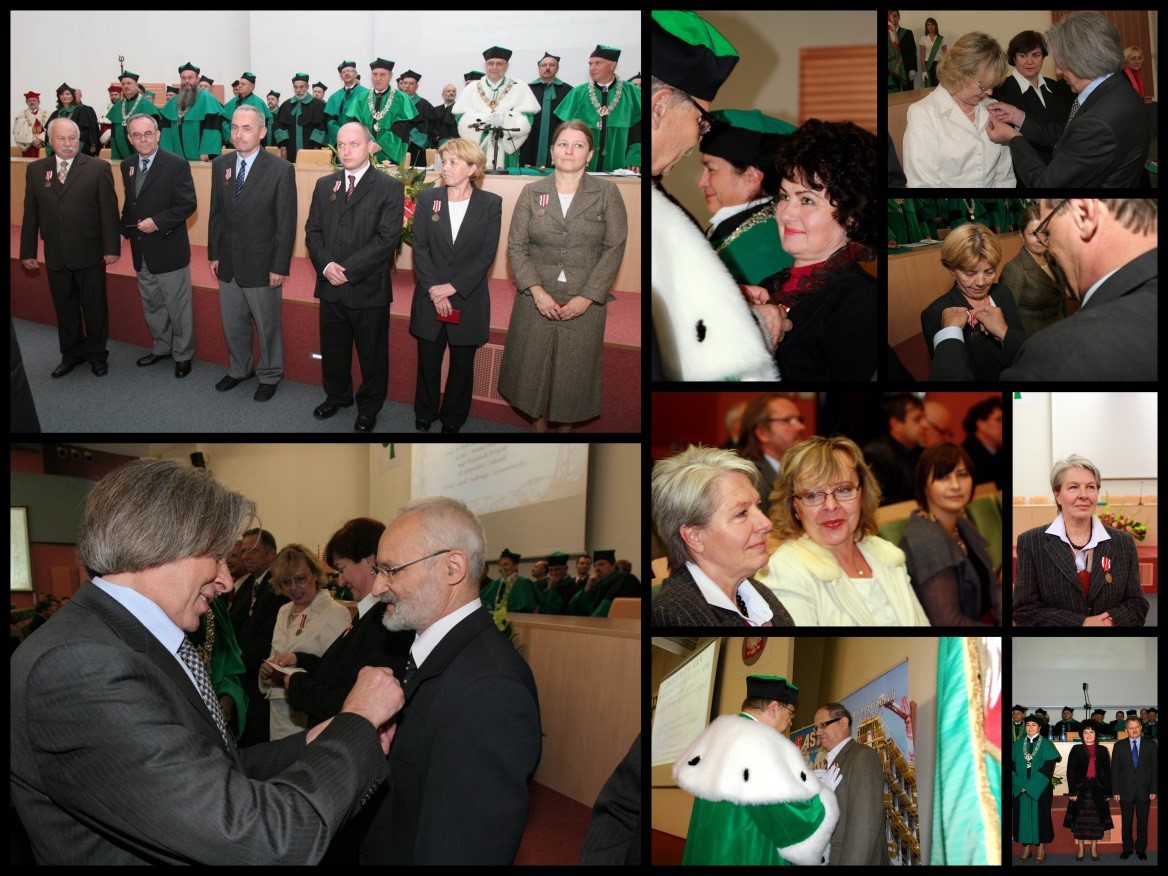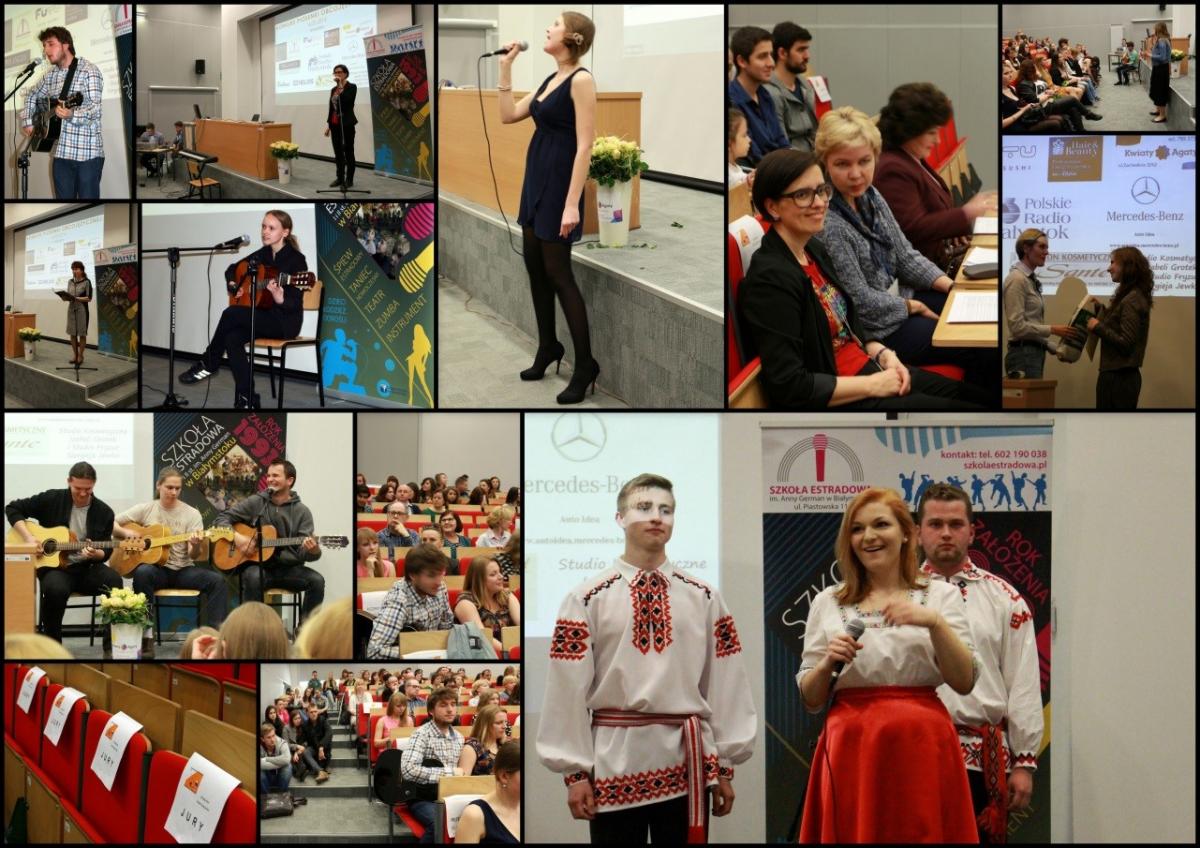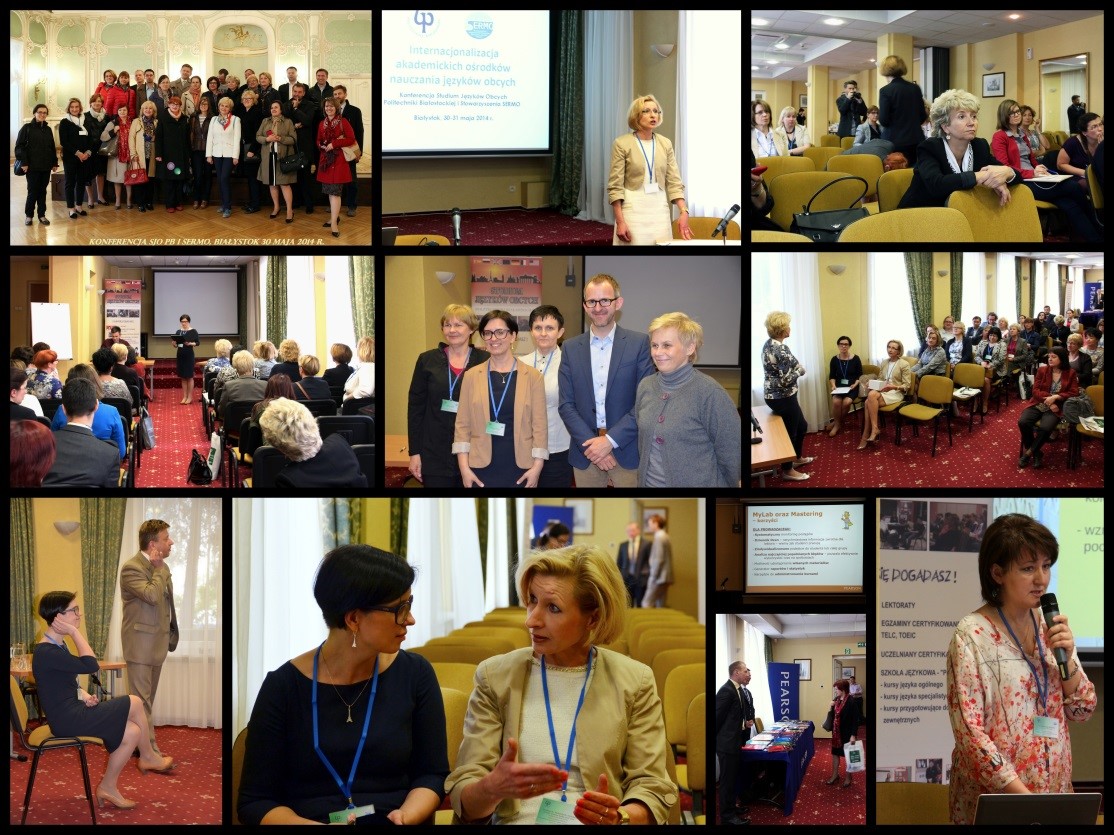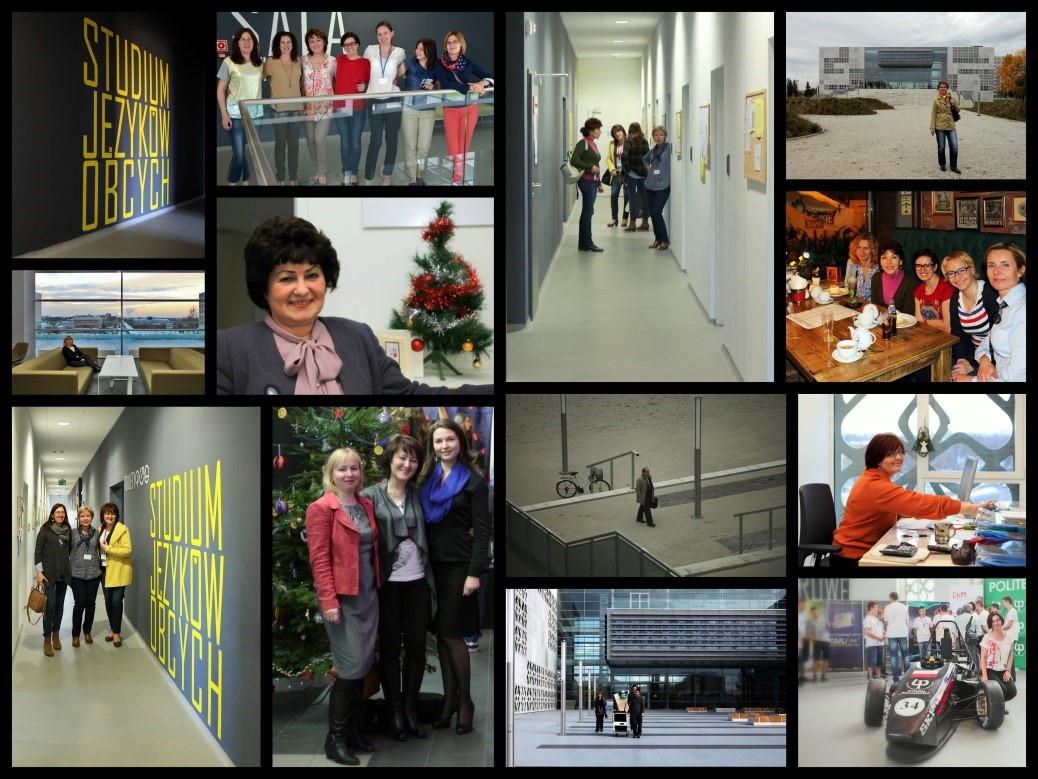History
Foreign language teaching has been a part of the educational programmes of the University since its very first years. Initially, due to a relatively small number of students, foreign language teachers were only contracted on the basis of a certain number of teaching hours. In 1964, the Centre for Practical Foreign Language Teaching was established at Bialystok Higher School of Engineering. Although in the beginning the Centre was organisationally subordinated to the Faculty of Civil Engineering and later to the Faculty of General Technical Sciences, it was fully autonomous. As the head of the Centre was assigned Aleksander Bołtryk, MA, a Russian language specialist.

Initially, the Centre employed few people – in 1965 there were 2 full-time employees and 4 people with contracted hours. Language classes were conducted at the faculties of Civil, Electrical, Mechanical Engineering and at the Faculty of General Technical Sciences. In 1969, two bodies were created in the Centre: Russian Language Teachers Team and Western European Languages Teachers Team. The Head of the first unit was Zinaida Bagniuk (Dziermańska), MA, who exercised the function uninterruptedly until 1996. The Head of the second unit was Irena Bruzda-Szymaniuk, MA, who exercised the function uninterruptedly until retirement in 1990.
The 1970s brought about a change of location of the Centre to Wiejska street, where it gained new facilities, such as language laboratories and modern – or its time – electronic equipment.

In 1976, the Western European Language Teachers Team was divided into English Language Teachers Team and German Language Teachers Team, which, for organisational purposes, included a teacher of French as well. The head of the English teachers team was Rose Prajs, a native English woman who exercised the function until retirement in 1981. The dynamic development of the University was reflected in gradually increasing employment of foreign language teachers, including native speakers. They were all increasingly well prepared for their profession. Most of them participated in courses and transnational traineeships, attended national conferences and developed their professional qualifications during postgraduate studies. Practical knowledge of foreign languages was gaining more and more recognition in the society. This was reflected in the introduction of foreign languages as an examination subject for candidates for the first year of full-time studies and in the extended foreign language programmes. The 1970s and 1980s saw an increase in teaching hours assigned to foreign languages. Apart from learning everyday and literary language, students would also work on specialised texts in the field of their studies. This was supposed to thoroughly prepare them for autonomous use of specialised literature, allow full participation in international conferences and facilitate creating professional relationships.

The 21st century brought further changes in the history of the Centre. 2002 marked the retirement of its Head – Aleksander Bołtryk, MA, who exercised the function for nearly 40 years. The position of the Head was then taken up by Roman Hajczuk, DSc, PhD (in the years 2002-2005), Alina Jabłońska Domurat, MA (in the years 2005-2008) and Wioletta Omelianiuk, MA (in the years 2008-2012, 2012-2016 and 2016-2018).
The term of office of Alina Jabłońska Domurat, MA was a time of changes in approach to foreign language teaching of not only language teachers and academics, but also of the University’s authorities. This resulted in the introduction of a compulsory exam at the end of a language course, then at B1 and B2 levels, which allowed for more intensive work with specialised language adapted to the characteristics of individual faculties. In 2006, pursuant to the ordinance of H.M. Rector, the Centre has attained the right to issue University Language Certificates at levels corresponding to the CEFR scale.
The Centre Regulations approved by the ordinance of H.M Rector in 2006 became the programming document. The document introduced the function of Deputy Head, Board of the Centre, examination board and allowed the Centre to carry out commercial activities.
In 2007, the Centre became a member of the Association of Academic Foreign Language Centres SERMO integrating it with its counterparts at other universities in Poland and abroad, which also highlighted the ongoing changes in the Centre.
In the same year, another significant change took place: the name of the Centre was shortened to Foreign Language Centre (Studium Języków Obcych – SJO) which reflected the profile of activities more fully: teaching was no longer limited to language courses required by the study programmes and also involved additional language courses under Polilingua Language Courses (to date, more than 2000 people have participated in language courses offered by the Centre), examinations for internal (BUT Language Certificate and Technical English Certificate (TEC) since 2018) and external language certificates such as TELC (in the years 2005-2010) and ETS GLOBAL (from 2008 to date, more than 1,000 people (students and employees alike) have taken the exam), examinations of doctoral students and, until 2009, examinations of students applying for Erasmus scholarship. The Centre also provides translations for the academic community. It is worth noting that in the years 2011-2014 102 employees of the University have attained B2 level certificates in foreign languages.
Although the terms of office of Wioletta Omelianiuk and Halina Bramska were mainly a continuation of changes initiated by Alina Jabłońska Domurat and Elżbieta Sieńko, they brought about another change in the profile of activities of the Foreign Language Centre. Along with the changes in the whole of higher education, the National Qualifications Framework (Krajowe Ramy Kwalifikacji – KRK) became the watchword for the next years of the activities of the Centre. It meant a revolution in the development of curricula. Foreign Language Centre was ready for new challenges. All teachers underwent internal and external training courses, subject coordinators were appointed who are responsible for development and publication of syllabuses and teaching teams were developing curricula based on assumed education outcomes according to pursued studies or specialisations. Thanks to the warm support of the then Vice Rector for Student Affairs and Education, Assoc. prof. Katarzyna Zabielska-Adamska, DSc, PhD, Eng the first central examination in foreign languages at B2 level took place in 2010. It was an enormous organisational challenge for the entire staff of the Centre, as up to 1000 students were taking the exam in one session. The offer of the central examination at level B2 is constantly widening: since 2012 the English exam is divided into three profiles: general, technical and business in order to meet the needs and expectations of students and to tie in even more closely with their studies.
Considering the rather unstable staffing situation at many universities in Poland, the Foreign Language Centre can be satisfied with the favour of the University’s authorities. In 2011, a minimum of foreign language course hours for full-time students was set at 150 hours for the first degree and 30 hours for the second degree. Furthermore, a foreign language course is henceforth also a part of the doctoral programme. Competitions for the positions of foreign language teachers were announced by successive Rectors. In the meantime, new administrative and technical staff have been hired. A new post of administrative specialist and a half-time post of an IT technician were created in 2011 and 2014 respectively.
It would be difficult to enumerate all the awards and distinctions received by the Centre’s staff, such as annual rewards of H.M. Rector, university, ministerial and state decorations and medals, as well as – particularly deserving of being emphasised – positive and outstanding periodic evaluation of the staff and excellent results in student surveys.

Educational and organisational work is not all there is to the Foreign Language Centre, as its main focus remains to popularise foreign language acquisition and promoting the Centre and the University itself. The Centre is the host of numerous cultural, educational and scientific events. It is always present at the Open Days of Bialystok University of Technology, during the subsequent editions of Podlasie Festival of Arts and Science and on the University Day, during the Salon Maturzystów event.
In the years 2005-2006 Foreign Language Centre organised Open Days with a number of events.

Promoting foreign languages was also reflected in four editions of the foreign language presentation competition (2011-2013 and 2017), annual organisation of the first stage of English and German Olympiads for technical universities, Russian Song Contest in 2011 and Foreign Language Song Contest (in the years 2014, 2016 and 2018).

In the years 2004-2012, Foreign Language Centre was located in the premises of Dormitory No. 1 Alpha. In 2012 came the long-awaited relocation to the CNK (Centrum Nowoczesnego Kształcenia) building.
For decades, foreign languages taught in the Centre consisted of the following four languages: English, French, German and Russian. The year 2012 marked the introduction of Polish as a foreign language. Two of the teachers – Alina Jabłońska Domurat, MA and Elżbieta Sieńko, MA launched a project and organised two editions of Intensive Polish Language Courses from scratch under EILC programme. These courses were very popular and were soon followed by the permanent inclusion of Polish as a foreign language to the Centre’s educational offer. The enormous organisational success was recognised last year, when SJO was awarded the first place for the Intensive Polish Language Courses EILC project in the institutional category in the EDUinspiracje competition organised by the Foundation for Education System Development (Fundusz Rozwoju Systemu Edukacji). The competition’s topic was: “Success stories: how has participation in educational programmes affected the functioning of institutions and our lives?”
The Centre’s staff are increasingly actively participating in didactic trips organised by the International Relations Office and the Centre itself is visited by students and teachers from all over Europe.
In the Jubilee Year, the Centre organised an international scientific and didactic conference on 30-31 May in cooperation with the Association of Academic Foreign Language Centres SERMO. The topic of the conference was: Internationalisation of academic foreign language teaching centres.The conference was a huge success and was met with positive reception of national and international participants.

Currently the Foreign Language Centre consists of 2 didactic teams (English Language Team and German, Russian and Spanish language team with a total of 27 teachers) and the Translation Team. Nowadays, the Centre’s activities consist of everyday educational and organisational work, attending training sessions and realising projects, developing teaching aids, promoting foreign languages and last but not least – translation.
Since 1 October 2018, the head of the Centre is Michał Citko, MA, the deputy – Violetta Grabińska, MA and the secretariat is headed by Edyta Kiersnowska, MSc, Eng. Technical support is provided by Leszek Zdrodowski.
